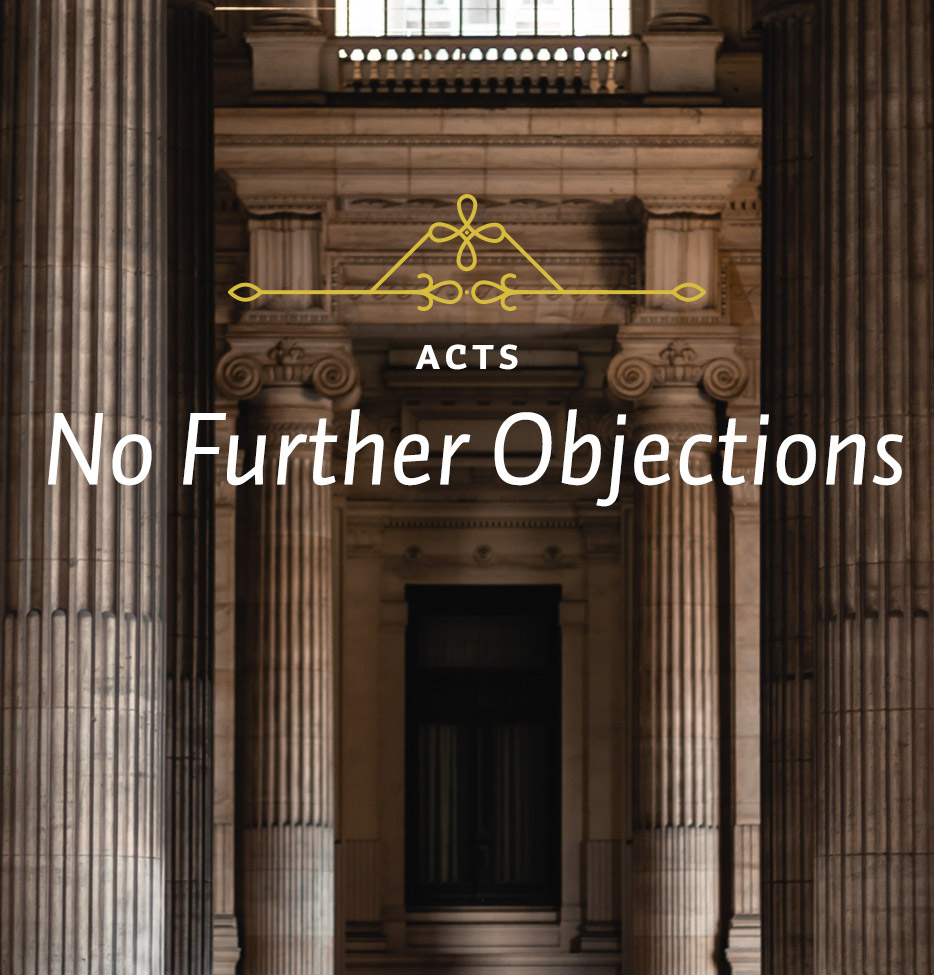The story we find in Acts 10 and 11 was of great importance to Luke because he tells it three times, twice in chapter 10 (once briefly) and again in chapter 11, the chapter we are to study now. Luke was composing under the direct influence and guidance of the Holy Spirit. So we know that the story of Peter’s preaching to the household of the centurion Cornelius was not only important to him but is important to God also.
These chapters tell us how God led Peter to go to a Gentile home in Caesarea to explain the Gospel to an exclusively Gentile congregation. As a result of their hearing that Gospel and believing it, the Holy Spirit came upon this gathering just as He had come upon the apostles of the Lord at Pentecost. That is, these Gentiles were received into the church as they were, as believing Gentiles, without their first having to become Jews.
If this had not happened, the church of Christ would never have become the universal missionary force it has proved itself to be throughout the centuries of church history. It would have remained a limited, ethnic community, as Judaism itself was at the time of Christ and, for the most part, continues to be today.
Peter probably went to Cornelius’ home reluctantly because, in addition to whatever mental adjustments he would have had to make in his own mind, he would also have known that he would have difficulty explaining his actions to his Jewish friends when he got back to Jerusalem. This is probably why he took six of his Jewish brethren with him. He wanted to have witnesses who could explain what happened, and he was very wise to have done that.
The problem was that Jewish Christians could not understand how it was permissible for a Jew to go into the house of an uncircumcised and therefore unclean Gentile. This was not a matter of Jews saying that God could never save a Gentile. Jews knew better than that. Some of the great stories of the Old Testament involve Gentiles who came into the fellowship of the people of Israel and were saved, in some cases, even becoming ancestors of the Lord Jesus Christ. But what they could not understand was how a Gentile could be saved without becoming a Jew first by circumcision, and by coming under the laws and traditions of Israel. They thought that salvation could be found only within the fellowship of the Jewish covenant community.
This was prejudice, of course. But it was understandable because it was based on a Jewish understanding of the Scriptures. Jews had been given the Old Testament, and the Old Testament contained strict regulations for their conduct. We recognize today that these regulations were temporary and that they had been distorted. Certainly the law did not require the kind of rigorous cultural restrictions that are involved in “kosher cooking,” to give just one example. Still, most of these practices had some basis in the Old Testament law, however remote, and Jews had been trained in these traditions and were punctilious in their observance.
From this time on, people were to become members of God’s family by faith in Jesus Christ alone and it would not be necessary for them to go through the door of Judaism first. Moreover, Jews who were Christians were to have fellowship with their Gentile brothers and sisters who had not become Jews, but had nevertheless believed in Jesus. There was to be one church—not two churches, which is what would have happened otherwise.
E. M. Blaiklock has written:
It required… a major readjustment of all thinking for a people, fiercely conscious of racial privilege and stirred anew by the thought that the Messiah of promise had appeared and spoken, readily to abandon the thought that a unique national destiny approached fulfillment. To accept a re-interpretation of ancient prophecies, to admit a spiritual rendering of old promises accepted and cherished as literal and material, to see Israel melt into the church, and the minority of the chosen lose identity, and privilege, and special place in a global organization, called for insight, faith, self-abnegation, magnanimity, and a transcendent view of God rarely found in any but the most enlightened souls.1
That is not an overstatement. The terms by which Gentiles were to become Christians required an adjustment, and needed to be addressed forcefully and directly—which is what the Holy Spirit was doing through Peter.
When Peter got back to Jerusalem, his Jewish brethren, who had already heard about what had happened in Caesarea, approached him and expressed their objections. They did not say, “It is not right for you to allow the Gentiles to become Christians.” They knew better than that. But what they did object to is what we find in verse 3. They said to Peter, “You went into the house of uncircumcised men and ate with them.” They meant, “You broke kosher.” That was the thing that really bothered them. Because if it was right for Peter to have done that, then Gentiles obviously had the right to come into their homes and the church as Gentiles and as the Jews’ equals. And that is where the prejudice lay.
We do not have this exact problem today, but we do have something like it. We say we are not prejudiced. But what we generally mean when we say we welcome anybody is that we are glad to have other people join us as long as they become like us.
The point is that God takes people as they are. They do not have to become something else before they can come to Jesus.
1E. M. Blaiklock, The Acts of the Apostles: An Historical Commentary (Grand Rapids, MI: Eerdmans, 1963), 97-98.






